Social media, technology, and privacy versus security concerns have been in the news a lot recently. In fact, I wrote about it not that very long ago.
You probably remember – even if you didn’t read my post on the topic – the big debate Apple had with the government recently about whether it should unlock an iPhone of a terrorist, right?
A Recap on Apple
In case you don’t, though, let me just sum it up for you in a few sentences:
Companies agreed with Apple that the government could not force them to unlock the phone because privacy outweighed security – a lot of people agreed. The government said that Apple should have to unlock the phone because security outweighed privacy – a lot of people agreed. There was going to be a court case, but before that, the government said, “Never mind, we found someone else who can do it.”
In other words, the legal responsibilities of companies still rages on.
Social Media Controversies
This is going to seem like a bit of a non sequitur, but I will tie these two seemingly incongruent points back together in the next section.
In the last several months, various social media algorithms have been facing some fire over how they are claimed to utilize their own algorithms to suppress stories that fit their agenda.
Take for starters Twitter:
A few months ago, after a woman confronted Hillary Clinton at a rally over comments she had made in the 90’s, an anti-Hillary hashtag took off: #whichHillary. At first, it was trending on Twitter, but within a short span of time, it was gone.
Some people took this to mean that the fire was burning out. Others had a different view.
A story came out claiming that Twitter, whose CEO happened to be throwing a fundraiser for Clinton that very weekend, was suppressing the story in a political move. Not to be thwarted, the anti-Hillary, pro-Bernie group took to also using #whichHillarycensored.
Similarly, over the last few days, Facebook has taken the front page on the suppression hot seat after a former employee came out and made accusations to that very affect.
The worker came out and told the press that the mega-site has taken to keeping conservative news stories out of the trends lists. He said that the stories you see do reflect an employee bias. Not only that, but sometimes they did the opposite too. A story that was not trending might be put on the list in order to get it more visibility.
Of course, Facebook claims that this is not true. In fact, they claim that they have looked into this report and found it completely without merit. They also say they strive to be completely neutral and fair.
On the other hand, people have come out and pointed out that this very story was trending on Twitter, but not Facebook – bringing up the question of whether that was a coincidence or not.
Twitter and the US Government
All of this has brought me to my real point: all the controversies and debates about privacy versus security has led to this:
Twitter is blocking US intelligence agencies from using its information to data mine.
To fully understand what I am talking about, you might need a little bit more information:
Twitter owns around five percent in a company called Dataminr.
This company’s purpose is to gather information available on social media sites and then use it to help its customers see emerging trends. It is a good marketing tool for companies.
All of this information is already available to the public – unlike the contents of an iPhone, but having it gathered and analyzed makes it a lot easier to get information from it.
The US law enforcement used to be one of Dataminr’s clients. However, Twitter, who is apparently concerned about seeming to be too inter-connected to the government, has recently taken it off its client list.
Lately, Twitter’s stock has been plummeting, and this could be a move designed to show people just how safe and trustworthy the site is. You know, it is like they are reminding people that despite everything you have heard recently, you can trust them and that your information is safe with them.
Twitter further clarifies its decision by claiming that this is not a new policy. In a statement, the company said
“Dataminr uses public Tweets to sell breaking news alerts to media organizations such as CBS News and government agencies such as the World Health Organization, for non-surveillance purposes. We have never authorized Dataminr or any third party to sell data to a government or intelligence agency for surveillance purposes. This is a longstanding Twitter policy, not a new development.”
For their part, a government official has said that while open source has never been more valuable to them, they are not concerned because it would be very difficult to stop them from getting this information.
They have work-arounds, friendly third-party companies, and other methods at their disposal to get this information if Twitter’s partner company will no longer give it to them.
What This Means for You
Unless your company happens to be one that is branched under the social media industry, you might wonder what any of this has to do with you or your company. However, if you think about it, you might realize that there is plenty in this for you:
- If you are marketing your business, then you probably are and at the very least should be using social media. Understanding the algorithms used by these sites can help teach you how to get your story out there to the world.
- Knowing the attitudes of your customers about censorship might make it easier for you to decide what information you want to be public and what you feel it is okay to hide. If this story teaches you nothing else, it should be that people value your transparency all while you are protecting their privacy.
On top of these smaller issues, there are three big legal questions you should want to know the answers to no matter what industry you happen to work in.
Is It Legal to Pick and Choose Your Customers?
One of the first things you should be asking yourself is whether you even have the right to pick and choose your customers as Twitter is doing. Can you say there are certain groups you will not work with?
What is interesting to me about the Twitter debate is the ability of Twitter to unilaterally decide not to do business with a specific group of people. There is a reason they can theoretically get away with it, though:
The government is not a protected class.
When you get in trouble for picking and choosing customers is when you pick and choose based off of characteristics that lead to discrimination lawsuits.
For example, if the city or state that you operate in protects sexual orientation, then you could not refuse to serve homosexuals. Similarly, you could not choose to refuse service to someone based off of their race or their gender.
If you are going to be selective with whom you will do business, then you need to make sure that none of your decisions has anything to do with a protected class and that it does not disparately affect a protected class more than other groups.
What Information Do You Have to Publicly Make Available to the Government (if Any)?
The next issue that should concern you is how much information you are legally required to give the government in order to aid them in the quest to keep the nation safe. You probably know that there are times when your assistance is required, but you need to know exactly where that line is.
I talked a lot about this in the earlier piece on Apple. At the time, I thought I’d have a lot more information to give you on the topic now since the case might have gone to trial by this point. However, since it hasn’t, the answer to this question is pretty much the same as it was then.
To sum up what I said there: while without a verdict in that particular case, I cannot say if a company has a duty to unlock individual devices for the government, there are definitely times when companies do have an obligation to provide requested information to government officials.
Do You Have a Legal or Moral Obligation to Be Transparent?
Social media companies get in a lot of trouble with their customers when it appears like they are suppressing stories. However, do they have any duty to be open, neutral, and fair?
When it comes to the law, probably not. There is no First Amendment right here because Facebook is a private company and has no duty to allow anybody to say anything at will. So while their client base may not like it – and those media outlets that are allegedly being suppressed probably hate it – there is likely no legal reason they would have to stop. Though if you think of one that I missed, please let me know in the comments.
Some Final Thoughts
The debate over privacy or security and censorship versus the rights of a private company are not likely to end any time soon. In fact, it may be a while before any of these stories gets far enough along to actually get to court.
That means that in the meantime you have a lot of guess work ahead of you if you have to decide between your own desire for privacy, your customer’s desire for you to remain transparent, your customer’s right to keep their information private, and the government’s duty to protect the country.
If you do find yourself having to make these tough decisions, take a look at all the different arguments surrounding these companies, and then make your decision fully informed.
Of course, it also never hurts to get some legal advice on these topics.



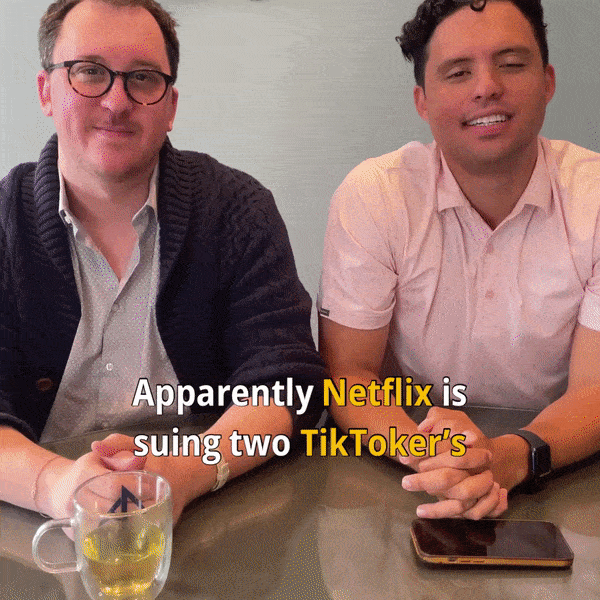
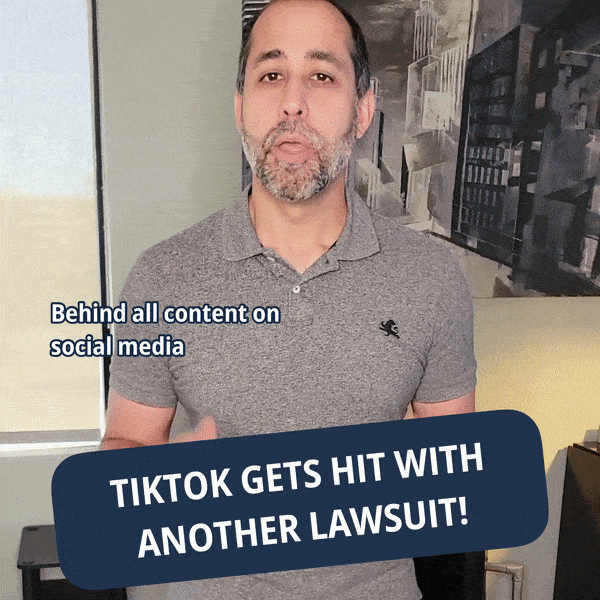
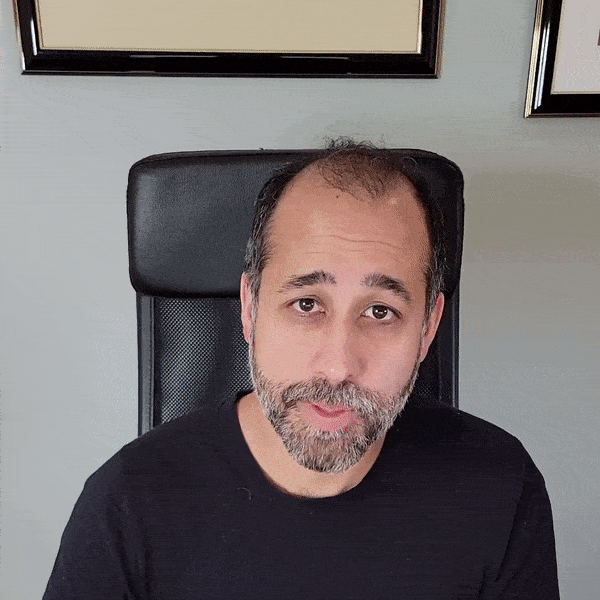
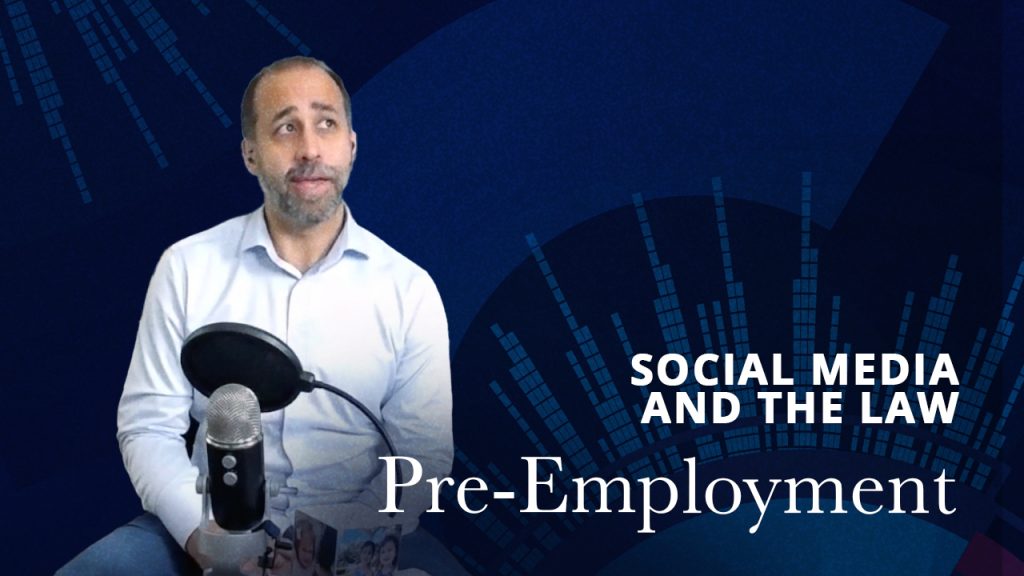
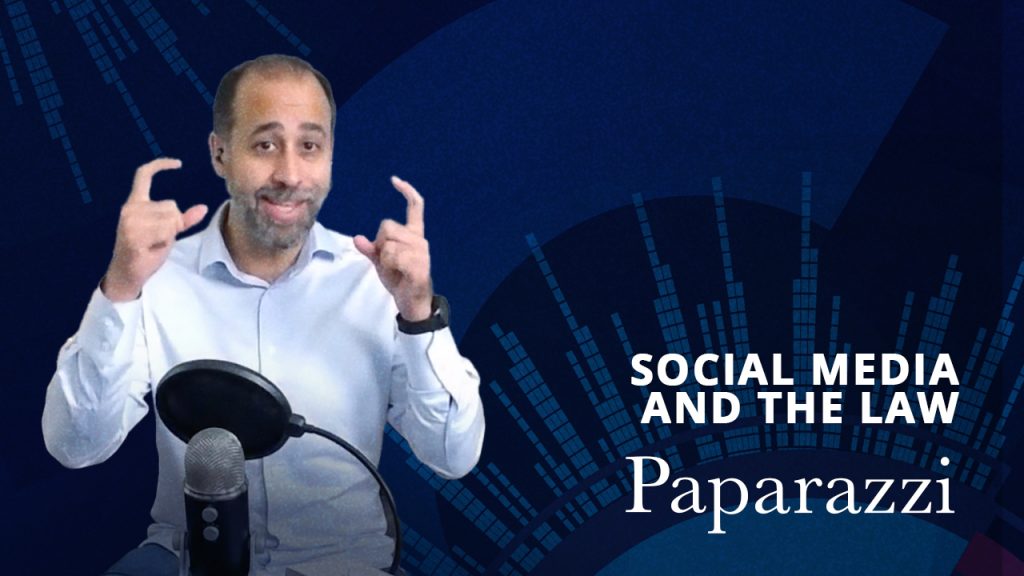
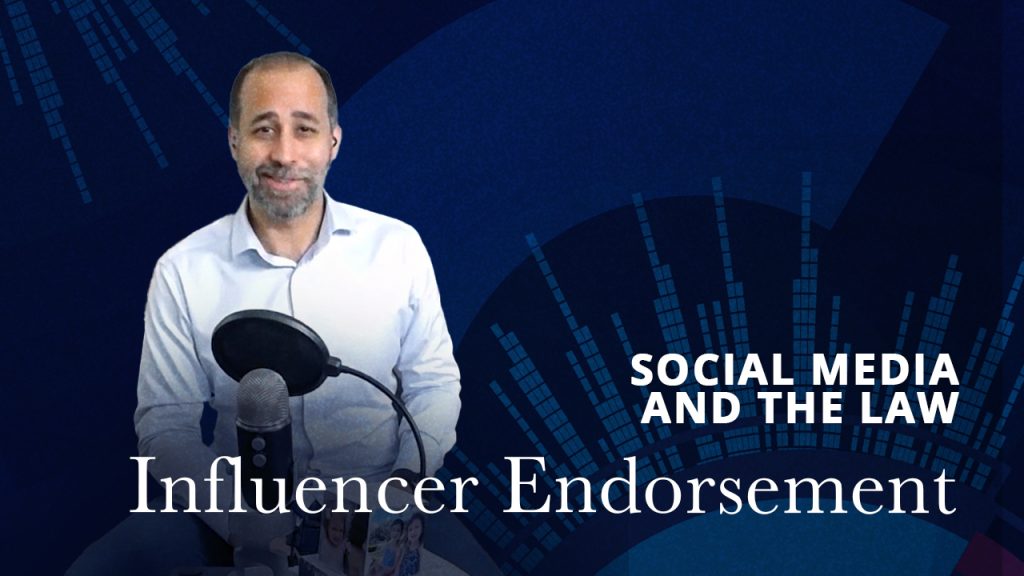
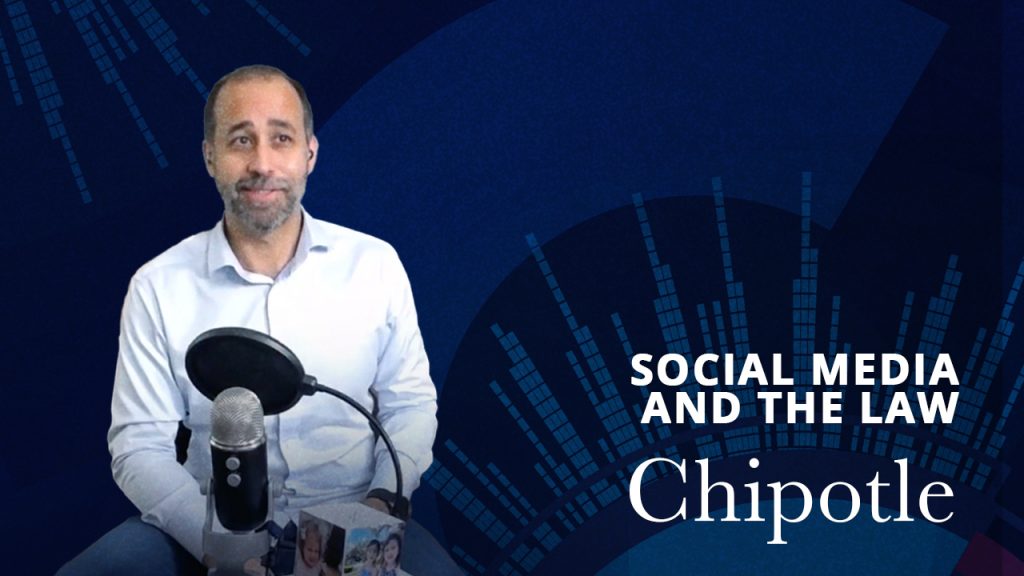
![Social Media and the Law [e315]](https://www.pashalaw.com/wp-content/uploads/2021/10/WhatsApp-Image-2021-10-06-at-1.43.08-PM-1024x723.jpeg)




![Law in the Digital Age: Exploring the Legal Intricacies of Artificial Intelligence [e323]](https://www.pashalaw.com/wp-content/uploads/2023/11/WhatsApp-Image-2023-11-21-at-13.24.49_4a326c9e-300x212.jpg)
![Unraveling the Workforce: Navigating the Aftermath of Mass Layoffs [e322]](https://www.pashalaw.com/wp-content/uploads/2023/07/Untitled-design-23-300x212.png)
![Return to the Office vs. Remote: What Can Employers Legally Enforce? [e321]](https://www.pashalaw.com/wp-content/uploads/2023/01/Pasha_LSSB_321_banner-300x212.jpg)
![Explaining the Hans Niemann Chess Lawsuit v. Magnus Carlsen [e320]](https://www.pashalaw.com/wp-content/uploads/2022/10/LAWYER-EXPLAINS-7-300x169.png)
![California v. Texas: Which is Better for Business? [313]](https://www.pashalaw.com/wp-content/uploads/2021/07/Pasha_LSSB_CaliforniaVSTexas-300x212.jpg)
![Buyers vs. Sellers: Negotiating Mergers & Acquisitions [e319]](https://www.pashalaw.com/wp-content/uploads/2022/06/Pasha_LSSB_BuyersVsSellers_banner-300x212.jpg)
![Employers vs. Employees: When Are Employment Restrictions Fair? [e318]](https://www.pashalaw.com/wp-content/uploads/2022/05/Pasha_LSSB_EmployeesVsEmployers_banner-1-300x212.jpg)
![Vaccine Mandates Supreme Court Rulings [E317]](https://www.pashalaw.com/wp-content/uploads/2022/02/WhatsApp-Image-2022-02-11-at-4.10.32-PM-300x212.jpeg)
![Business of Healthcare [e316]](https://www.pashalaw.com/wp-content/uploads/2021/11/Pasha_LSSB_BusinessofHealthcare_banner-300x212.jpg)
![Social Media and the Law [e315]](https://www.pashalaw.com/wp-content/uploads/2021/10/WhatsApp-Image-2021-10-06-at-1.43.08-PM-300x212.jpeg)
![Defining NDA Boundaries: When does it go too far? [e314]](https://www.pashalaw.com/wp-content/uploads/2021/09/Pasha_LSSB_NDA_WordPress-2-300x212.jpg)
![More Than a Mistake: Business Blunders to Avoid [312] Top Five Business Blunders](https://www.pashalaw.com/wp-content/uploads/2021/06/Pasha_LSSB_Blunders_WP-1-300x212.jpg)
![Is There a Right Way to Fire an Employee? We Ask the Experts [311]](https://www.pashalaw.com/wp-content/uploads/2021/02/Pasha_LSSB_FireAnEmployee_Website-300x200.jpg)
![The New Frontier: Navigating Business Law During a Pandemic [310]](https://www.pashalaw.com/wp-content/uploads/2020/12/Pasha_LSSB_Epidsode308_Covid_Web-1-300x200.jpg)
![Wrap Up | Behind the Buy [8/8] [309]](https://www.pashalaw.com/wp-content/uploads/2020/11/Pasha_BehindTheBuy_Episode8-300x200.jpg)
![Is it all over? | Behind the Buy [7/8] [308]](https://www.pashalaw.com/wp-content/uploads/2020/09/iStock-1153248856-overlay-scaled-300x200.jpg)
![Fight for Your [Trademark] Rights | Behind the Buy [6/8] [307]](https://www.pashalaw.com/wp-content/uploads/2020/07/Fight-for-your-trademark-right-300x200.jpg)
![They Let It Slip | Behind the Buy [5/8] [306]](https://www.pashalaw.com/wp-content/uploads/2020/06/Behind-the-buy-they-let-it-slip-300x200.jpg)
![Mo’ Investigation Mo’ Problems | Behind the Buy [4/8] [305]](https://www.pashalaw.com/wp-content/uploads/2020/05/interrobang-1-scaled-300x200.jpg)
![Broker or Joker | Behind the Buy [3/8] [304] Behind the buy - Broker or Joker](https://www.pashalaw.com/wp-content/uploads/2020/04/Joker-or-Broker-1-300x185.jpg)
![Intentions Are Nothing Without a Signature | Behind the Buy [2/8] [303]](https://www.pashalaw.com/wp-content/uploads/2020/04/intentions-are-nothing-without-a-signature-300x185.jpg)
![From First Steps to Final Signatures | Behind the Buy [1/8] [302]](https://www.pashalaw.com/wp-content/uploads/2020/04/first-steps-to-final-signatures-300x185.jpg)
![The Dark-side of GrubHub’s (and others’) Relationship with Restaurants [e301]](https://www.pashalaw.com/wp-content/uploads/2015/04/When-Competition-Goes-Too-Far-Ice-Cream-Truck-Edition-300x201.jpg)
![Ultimate Legal Breakdown of Internet Law & the Subscription Business Model [e300]](https://www.pashalaw.com/wp-content/uploads/2019/05/Ultimate-Legal-Breakdown-of-Internet-Law-the-Subscription-Business-Model-300x196.jpg)
![Why the Business Buying Process is Like a Wedding?: A Legal Guide [e299]](https://www.pashalaw.com/wp-content/uploads/2019/03/futura-300x169.jpg)
![Will Crowdfunding and General Solicitation Change How Companies Raise Capital? [e298]](https://www.pashalaw.com/wp-content/uploads/2018/11/Will-Crowdfunding-and-General-Solicitation-Change-How-Companies-Raise-Capital-300x159.jpg)
![Pirates, Pilots, and Passwords: Flight Sim Labs Navigates Legal Issues (w/ Marc Hoag as Guest) [e297]](https://www.pashalaw.com/wp-content/uploads/2018/07/flight-sim-labs-300x159.jpg)
![Facebook, Zuckerberg, and the Data Privacy Dilemma [e296] User data, data breach photo by Pete Souza)](https://www.pashalaw.com/wp-content/uploads/2018/04/data-300x159.jpg)
![What To Do When Your Business Is Raided By ICE [e295] I.C.E Raids business](https://www.pashalaw.com/wp-content/uploads/2018/02/ice-cover-300x159.jpg)
![General Contractors & Subcontractors in California – What you need to know [e294]](https://www.pashalaw.com/wp-content/uploads/2018/01/iStock-666960952-300x200.jpg)
![Mattress Giants v. Sleepoplis: The War On Getting You To Bed [e293]](https://www.pashalaw.com/wp-content/uploads/2017/12/sleepopolis-300x159.jpg)
![The Harassment Watershed [e292]](https://www.pashalaw.com/wp-content/uploads/2017/12/me-2-300x219.jpg)
![Investing and Immigrating to the United States: The EB-5 Green Card [e291]](https://www.pashalaw.com/wp-content/uploads/2012/12/eb-5-investment-visa-program-300x159.jpg)
![Responding to a Government Requests (Inquiries, Warrants, etc.) [e290] How to respond to government requests, inquiries, warrants and investigation](https://www.pashalaw.com/wp-content/uploads/2017/10/iStock_57303576_LARGE-300x200.jpg)
![Ultimate Legal Breakdown: Employee Dress Codes [e289]](https://www.pashalaw.com/wp-content/uploads/2017/08/Ultimate-Legal-Breakdown-Template-1-300x159.jpg)
![Ultimate Legal Breakdown: Negative Online Reviews [e288]](https://www.pashalaw.com/wp-content/uploads/2017/06/Ultimate-Legal-Breakdown-Online-Reviews-1-300x159.jpg)
![Ultimate Legal Breakdown: Social Media Marketing [e287]](https://www.pashalaw.com/wp-content/uploads/2017/06/ultimate-legal-breakdown-social-media-marketing-blur-300x159.jpg)
![Ultimate Legal Breakdown: Subscription Box Businesses [e286]](https://www.pashalaw.com/wp-content/uploads/2017/03/ultimate-legal-breakdown-subscription-box-services-pasha-law-2-300x159.jpg)
![Can Companies Protect Against Foreseeable Misuse of Apps [e285]](https://www.pashalaw.com/wp-content/uploads/2017/01/iStock-505291242-300x176.jpg)
![When Using Celebrity Deaths for Brand Promotion Crosses the Line [e284]](https://www.pashalaw.com/wp-content/uploads/2017/01/celbrity-300x159.png)
![Are Employers Liable When Employees Are Accused of Racism? [e283] Racist Employee](https://www.pashalaw.com/wp-content/uploads/2016/12/Are-employers-liable-when-an-employees-are-accused-of-racism-300x159.jpg)
![How Businesses Should Handle Unpaid Bills from Clients [e282] What to do when a client won't pay.](https://www.pashalaw.com/wp-content/uploads/2016/12/How-Businesses-Should-Handle-Unpaid-Bills-to-Clients-300x159.png)
![Can Employers Implement English Only Policies Without Discriminating? [e281]](https://www.pashalaw.com/wp-content/uploads/2016/11/Can-Employers-Impliment-English-Only-Policies-Without-Discriminating-300x159.jpg)
![Why You May No Longer See Actors’ Ages on Their IMDB Page [e280]](https://www.pashalaw.com/wp-content/uploads/2016/10/IMDB-AGE2-300x159.jpg)
![Airbnb’s Discrimination Problem and How Businesses Can Relate [e279]](https://www.pashalaw.com/wp-content/uploads/2016/09/airbnb-300x159.jpg)
![What To Do When Your Amazon Account Gets Suspended [e278]](https://www.pashalaw.com/wp-content/uploads/2016/09/What-To-Do-When-Your-Amazon-Account-Gets-Suspended-1-300x200.jpg)
![How Independent Artists Reacted to Fashion Mogul Zara’s Alleged Infringement [e277]](https://www.pashalaw.com/wp-content/uploads/2016/08/How-Independent-Artists-Reacted-to-Fashion-Mogul-Zaras-Alleged-Infringement--300x159.jpg)
![Can Brave’s Ad Replacing Software Defeat Newspapers and Copyright Law? [e276]](https://www.pashalaw.com/wp-content/uploads/2016/08/Can-Braves-Ad-Replacing-Software-Defeat-Newspapers-and-Copyright-Law-300x159.jpg)
![Why The Roger Ailes Sexual Harassment Lawsuit Is Far From Normal [e275]](https://www.pashalaw.com/wp-content/uploads/2016/07/WHY-THE-ROGER-AILES-SEXUAL-HARASSMENT-LAWSUIT-IS-FAR-FROM-NORMAL-300x159.jpeg)
![How Starbucks Turned Coveted Employer to Employee Complaints [e274]](https://www.pashalaw.com/wp-content/uploads/2016/07/iStock_54169990_LARGE-300x210.jpg)
